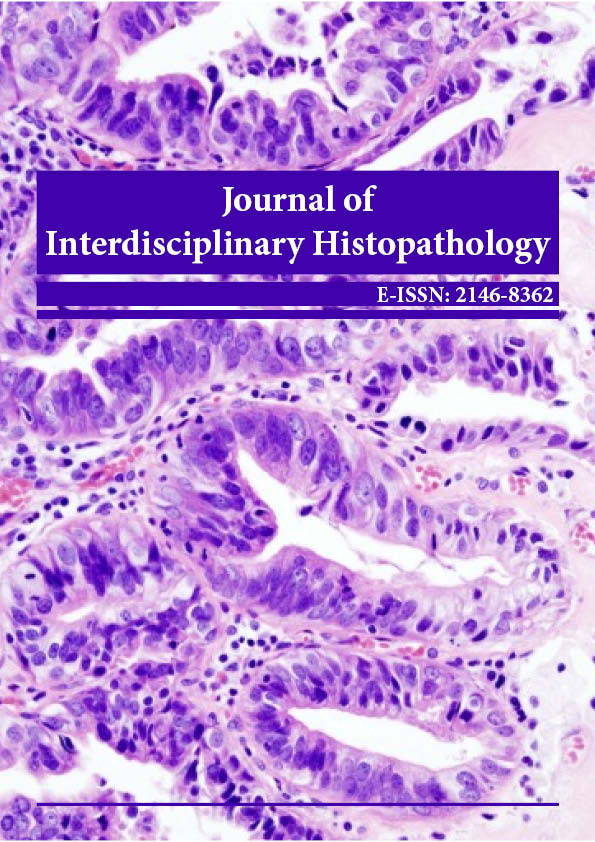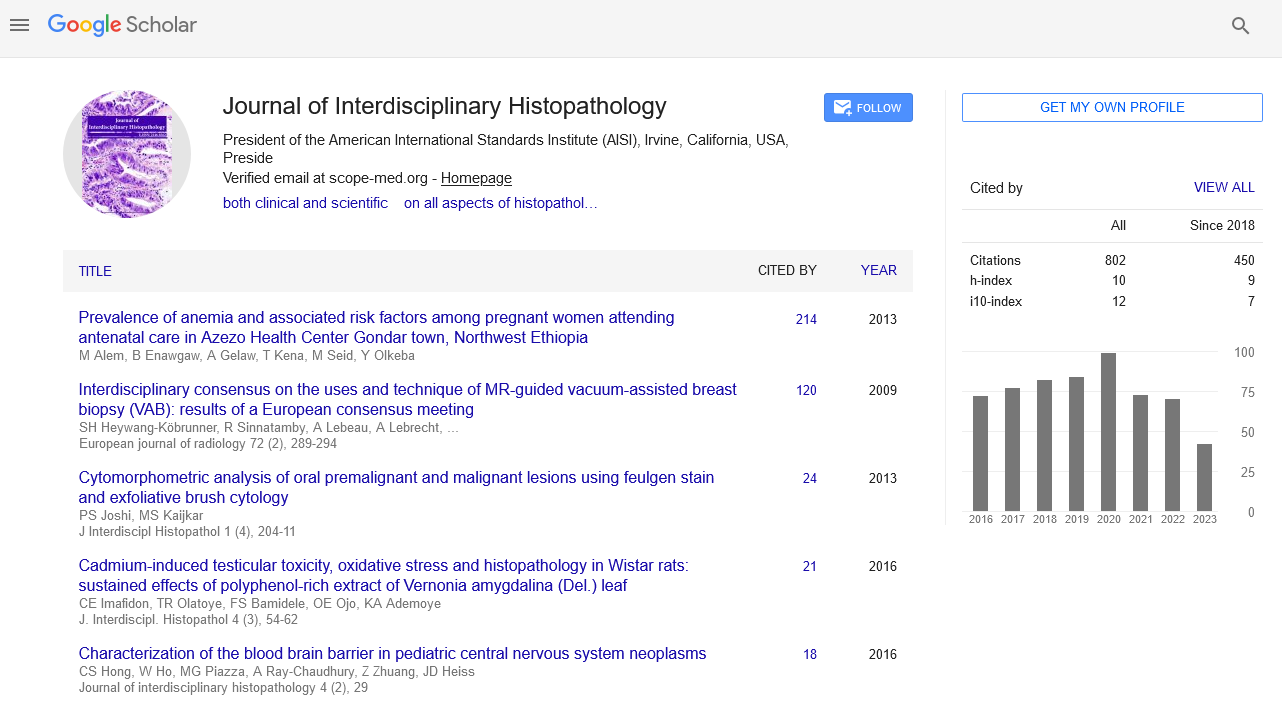Association of Claudin-1 with E-Cadherin/Catenin Complex, Microvessel Density (MVD)-Related Markers, and Clinicopathological Features in Colorectal Carcinoma
Abstract
Urania Skoufi, Dimitrios L Arvanitis, Litsa Lampri, Elli Ioachim, Jim Koutsogiannis,Christina Skoufi, Dimitris Tsironisand Antigony Mitselou
Objectives: Intercellular adhesion mediated by claudin and cadherin/catenin complex is a prerequisite of epithelial integrity and differentiation and has been suggested to be frequently disturbed in cancers. Endoglin (CD105) has been shown to be a more useful marker to identify proliferating endothelium involved in angiogenesis than pan-endothelial markers such as CD31. The aim of this study was to assess the relationship between these markers and clinicopathological features of colorectal carcinomas. Materials and Methods: Surgical specimens from 69 patients with colorectal cancer were immunostained for claudin-1, E-cadherin, β-catenin, endoglin and CD31. Results: Forty-six (66.7%), 67 (97.1%), and 67 (97.1%) of the tumors, expressed immunostaining for claudin-1, E-cadherin and β-catenin, respectively. A significant association was seen between claudin-1 and Ecadherin expression (p=0.002), as well with β-catenin (p=0.009). High βcatenin expression appeared to reduce the risk of poor outcome. Endoglin vessel expression was correlated significantly with vessel invasion (p<0.0001), lymph node metastases (p=0.039), liver metastases (p<0.0001) and recurrence of the disease (p<0.010). Endoglin tumor cell expression was associated with E-cadherin and β-catenin expression (p=0.001 and p=0.068), but not with claudin-1 expression (p=0.299). Conclusions: Loss of the expression of claudin-1, E-cadherin/β-catenin downregulation, and high CD105-MVD counts may play a significant role in the high incidence of angiolymphatic invasion, metastases and prognosis in colorectal-cancer patients, but further studies are needed to clearly define their role in colorectal carcinom
PDF





